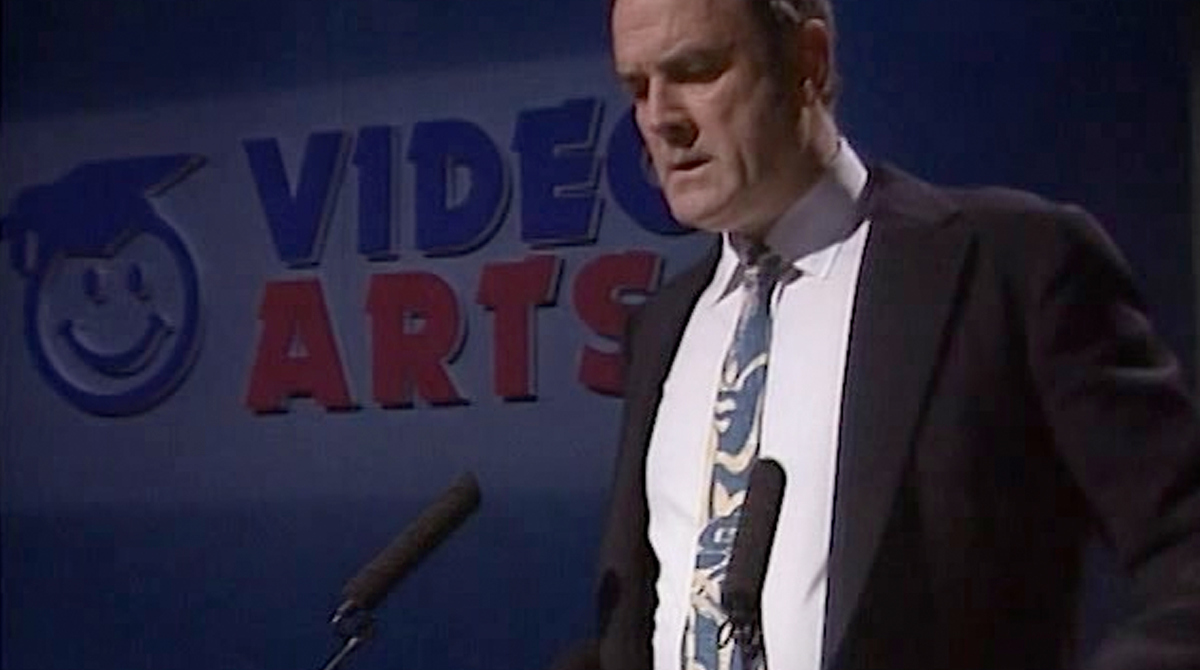
One of my favorite movies during my high school years was Monty Python and the Holy Grail. I was quickly hooked by the dry witted and ridiculous humor and can’t tell you how many times I watched that movie. I eventually found my way to watching sketches from Monty Python’s Flying Circus and was equally hooked. I recently shared one sketch with my 6‑year-old son, and we just sat there belly-laughing with one another. While Monty Python isn’t for everyone, I certainly have appreciated it over the years.
John Cleese made his living being funny. A number of years ago, I came across a video of Cleese lecturing about creativity. It was not only a delight to watch, but it was also really instructive. I ended up sharing it with my whole team at Focus Lab. It was an opportunity to learn from someone whose career depended on knowing how to step into and out of creative flows. The video was later removed but eventually showed back up. I was delighted to find it again recently, and I thought I’d share it here along with some of my notes.
If your job requires creativity from time to time, you should give this a watch. It’s about 35 minutes long and includes some of Cleese’s standard dry humor to boot.
The most creative professionals always play with the problem for much longer before they try to resolve it because they are prepared to tolerate that slight discomfort — anxiety — that we all experience when we haven’t solved a problem.
Cleese presents many great ideas, some of which I capture below, but there’s one in particular I want to call out here. He suggests that it’s easier to be creative if you’ve got other people to work and play with. Creating as a part of a team is hugely valuable. In a brief nine seconds of the video, he gives examples of phrases you can use while working with others. These are phrases that are positive in nature which encourage the creative flow, rather than stopping it in its track.
Watching this video recently was a nice reminder for me in terms of how I creatively work with others on my team. Give it a watch and let me know what you think.
https://www.youtube.com/watch?v=Pb5oIIPO62g
“Creativity is not a talent. It’s a way of operating.”
“Creativity is not an ability that either have or do not have.”
The research that Cleese references described the most creative people as those who have the ability to play. He even described their play as being childlike. It’s a willingness to explore without a need for immediate practical purpose, but just for enjoyment.
He describes a concept of an “open” and “closed” mode in working. Cleese shares the story of the discovery of penicillin and how operating in the open mode was required for this discovery. Later he says that to be most efficient, we need to be able to switch between these two modes intentionally. And most importantly, we need to avoid getting stuck in the closed mode.
“There are certain conditions which do make it more likely that you’ll get into the open mode and that something creative will occur.”
Five factors you can arrange to make your life more creative:
“It’s easier to do trivial things that are urgent than it is to do important things that are not urgent (like thinking). And it’s also easier to do little things we know we can do than to start on big things that we’re not so sure about.”
On comparing his own work to that of others on his team:
“My work was more creative than his simply because I was prepared to stick with the problem longer.”
“The most creative professionals always play with the problem for much longer before they try to resolve it because they are prepared to tolerate that slight discomfort — anxiety — that we all experience when we haven’t solved a problem.”
I love his section about knowing when decisions need to be made and how you shouldn’t rush them. (21:08 – 22:32)
“You cannot be playful if you’re frightened that moving in some direction will be wrong — something you shouldn’t have done.”
“I think it’s easier to be creative if you’ve got other people to play with. I always find that if two, or more, of us throw out ideas backwards and forwards, I get to more interesting and original places than I could have ever got to on my own.”
He goes on to talk about how “play with others” should be protected against anyone in the group squashing ideas during this “open” play time. This part starts at 28:19.
“Creativity is like humor. In a joke, the laugh comes at a moment when you connect two different frameworks of reference in a new way. [Tells a joke.] We laugh at the moment of contact between the two frameworks of reference. Having a new idea is exactly the same thing. It’s connecting two hitherto separate ideas in a way that generates new meaning.”
“If you really don’t know how to start, or if you’re stuck, start by generating random connections and allow your intuition to tell you if one might lead somewhere interesting.”
He ends with steps in how to remove opportunity for creativity from those who report to you. It’s a fun way to be reminded of things not to do if you want to maintain an environment and culture of creativity. (33:20)
Published on September 23, 2020
© 2025 Erik Reagan unless otherwise noted
Some of the links on my site are "affiliate links." This means if you click on the link and purchase the item, I will receive an affiliate commission. It's basically peanuts, but every little bit will help as I work on self-publishing my first book.